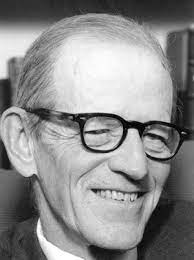Mayo, Elton

Bio: (1880-1949) Australian-American psychologist, sociologist, and theorist of management. Elton Mayo studied at the University of Queensland and later taught at the same university. After leaving for the United States, he became a professor of industrial research at Harvard Business School. Mayo is considered one of the founders of several scientific disciplines: industrial sociology, industrial and organizational psychology, human relations theory, and scientific management.
For sociology, his contributions to the development of industrial sociology are the most important. In the period from 1927 to 1933, Mayo conducted empirical research at the Western Electric Company factory, which was located in Hawthorne, a suburb of Chicago, so the whole study is known as the "Hawthorne Study". The first part of the study investigated the effects of improving technological working conditions on the productivity of manual workers. Mayo and his colleagues concluded that changing working conditions was not a decisive factor in increasing productivity, but the workers, who were the subject of the study, had a sense of specialness because they had been chosen to be part of the study. The fact that they were elected and given attention gave the workers a sense of group belonging and the impression that they had control over their work.
In the further phase of the research, twenty thousand interviews were conducted with employees of all of the plants of that company. The interviews revealed the existence of great apathy, hostility toward managers, and the existence of informal norms among workers. Mayo used the results and conclusions of this research to study the entire industrial society. He concluded that there is a mass apathy of workers in the industries due to the inhumane management of the workers. He believed that the solution was, not only in improving the real position of workers and in more humane relations at work, but also in the global change in the structure of industrial society.
Theoretical approaches
PsychoanalysisMain works
The Human Problems of an Industrialized Civilization (1933);
The Social Problems of an Industrialized Civilization (1945);
Psychology of Pierre Janet (1952).

